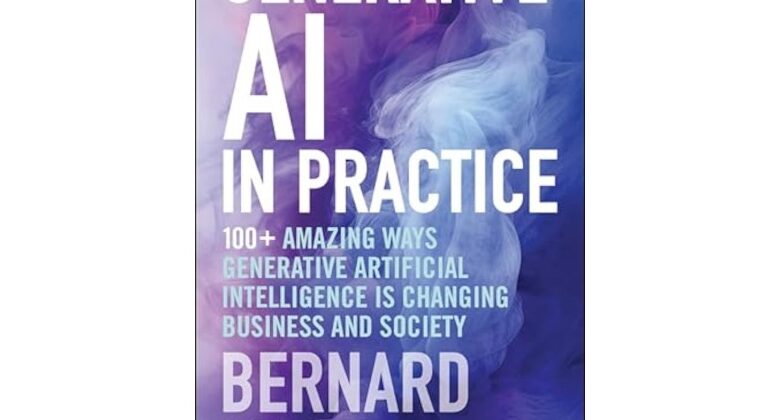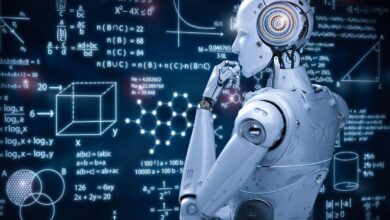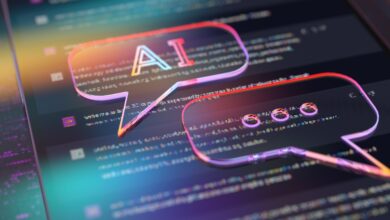Generative AI Expert Looks Behind the Myth to Reality

Generative AI tools such as ChatGPT have generated a lot of buzz over the past year as various industries and businesses ramp up their use of artificial intelligence. The upsurge in generative AI tools has not been without controversy, however, as critics express concern over the validity of many results and concerns about jobs being lost.
Bernard Marr, an well-known author and tech advisor, has written a book titled “Generative AI in Practice: 100+ Amazing Ways Generative Artificial Intelligence is Changing Business and Society,” that says generative AI is the pinnacle of today’s technological evolution. His book gives readers a deep dive into the universe of generative AI, discussing the impact on society and clearing up misconceptions many may have.
Author and tech expert Bernard Marr.
Design News recently conducted an e-mail interview probing Marr’s thoughts on generative AI’s role and related issues. Here are Marr’s thoughts.
Which industries are most likely to experience radical transformation due to generative AI? Why are these particular sectors most prone to change?
Bernard Marr: Industries such as healthcare, finance, and entertainment are most likely to experience radical transformation due to generative AI. Healthcare can leverage AI for personalized medicine, diagnostic tools, and administrative efficiency. The finance sector benefits from AI’s ability to analyze vast amounts of data for risk assessment, fraud detection, and personalized financial services. Entertainment, including gaming and content creation, is being revolutionized through AI-generated media, scripts, and interactive experiences. These sectors are particularly prone to change because they heavily rely on data analysis, personalization, and innovative content creation, areas where generative AI excels.
Manufacturing and other tech sectors are undergoing transformation due to generative AI, but the changes so far don’t seem to be occurring as quickly as other industries. Why may that be the case and do you expect AI transformation to accelerate in these sectors?
Bernard Marr: The slower pace of transformation in manufacturing can be attributed to the complexity and scale of the industry. Implementing AI in manufacturing often requires substantial changes to existing infrastructure, rigorous testing, and adherence to strict safety standards. Additionally, there may be a significant initial investment required to integrate AI solutions. However, I expect the pace of AI transformation to accelerate as companies in the manufacturing industry continue to recognize the long-term benefits of AI, such as improved efficiency, predictive maintenance, and advanced robotics, and as the technology becomes more accessible and cost-effective.
A lot of engineers have voiced their concern over the potential for changing job roles, including the loss of jobs, due to AI adoption. While AI supporters insist these tools will make engineers more productive, what is to stop companies from using AI as a reason to pare payroll to save costs rather than boosting productivity?
Bernard Marr: While the concern of job displacement is valid, the real potential of AI lies in augmenting human capabilities rather than replacing them. Companies should focus on using AI to enhance productivity and innovation. Regulatory frameworks and ethical guidelines can help ensure that AI is used to empower workers rather than simply reduce headcount. Additionally, companies that invest in retraining and upskilling their workforce can leverage AI to drive growth and competitiveness without significant job losses.
A lot has been said about AI potentially replacing some jobs. What jobs will AI create? Also, how will the role of traditional computer programmers and analysts change as AI tools perform some of their functions?
Bernard Marr: AI will create new job roles in areas such as AI development, ethics, and oversight, as well as positions focused on integrating and maintaining AI systems. Roles like AI trainers, data ethicists, and AI-driven customer service managers will emerge. For traditional computer programmers and analysts, AI will shift their roles towards higher-level oversight, problem-solving, and developing more sophisticated algorithms. They will spend less time on repetitive coding tasks and more on strategic planning and creative solutions, enhancing the overall value they bring to their organizations.
Experts are saying we should proceed with caution when interpreting the results from generative AI tools. But can a lack of guidelines for using AI create a looming issue on how to best interpret and integrate results from AI outputs into daily processes and decisions?
Bernard Marr: Absolutely, the interpretation and integration of AI outputs are critical challenges. Without clear guidelines, there’s a risk of misinterpreting AI results, leading to flawed decisions. Establishing best practices for AI usage, including rigorous validation of AI outputs and continuous monitoring for biases, is essential. Companies should invest in training their employees to understand AI capabilities and limitations, ensuring that AI tools are used effectively and responsibly in decision-making processes.
There’s been a cry for more AI regulations on an industry-wide level. Would such regulations be enough to encompass a wide range of industries and business practices? Or is the real issue establishing best practices to ethically and responsibly implement AI?
Bernard Marr: While industry-wide regulations are important, they may not be sufficient to address the specific needs and challenges of different sectors. The real issue lies in establishing best practices for ethical and responsible AI implementation tailored to each industry’s unique context. Regulations should provide a broad framework, but organizations must develop their own guidelines and standards to ensure that AI is used ethically, transparently, and with accountability.
As generative AI tools become sophisticated, what are the challenges for companies to integrate them into their workflows?
Bernard Marr: Integrating sophisticated generative AI tools into workflows presents several challenges. These include ensuring data quality and consistency, addressing privacy and security concerns, and managing the cultural shift within the organization. Companies must also deal with the technical complexity of integrating AI systems with existing infrastructure. To overcome these challenges, it is crucial to adopt a phased approach, starting with pilot projects, and gradually scaling up while continuously assessing and optimizing the AI implementation. Investing in employee training and fostering a culture of innovation and adaptability will also be key to successful integration.



